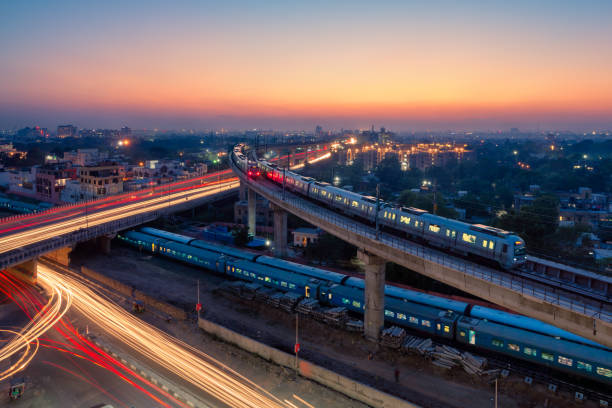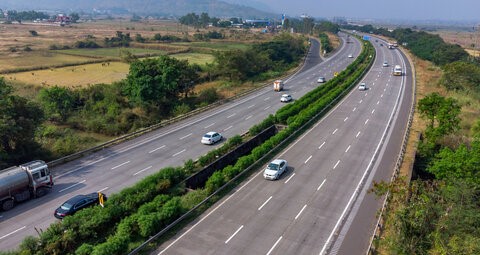[ad_1]

1. Delhi-Mumbai Expressway
The Delhi-Mumbai Expressway is one of the most significant infrastructure projects in India. Currently under construction, this 1,386-kilometer-long expressway will reduce travel time between Delhi and Mumbai to just 12 hours. The expressway will pass through Delhi, Haryana, Uttar Pradesh, Rajasthan, Gujarat, Madhya Pradesh, Dadra and Nagar Haveli, and Maharashtra, covering a vast expanse of the country.
2. Bengaluru-Chennai Expressway
The Bengaluru-Chennai Expressway is set to cover a distance of 262 kilometres, drastically reducing travel time between the two cities to just 2 hours. This expressway will traverse Karnataka, Andhra Pradesh, and Tamil Nadu, offering a swift and efficient route for travellers and boosting regional connectivity.
3. Varanasi-Ranchi-Kolkata Expressway
Connecting Varanasi to Kolkata via Ranchi, this 612-kilometer-long access-controlled corridor will cut the travel time from 15 hours to just 9 hours. The expressway will pass through Uttar Pradesh, Bihar, Jharkhand, and West Bengal, significantly improving travel efficiency across these states.
4. Hyderabad-Vishakhapatnam Expressway
The Hyderabad to Vishakhapatnam Expressway will span 222 kilometres, running through Telangana and Andhra Pradesh. This expressway is expected to enhance connectivity between the two cities and ease the flow of traffic in the region.
5. Delhi-Dehradun Expressway
The Delhi to Dehradun Expressway, stretching 239 kilometres via Saharanpur, will be an access-controlled corridor covering Delhi, Uttar Pradesh, and Uttarakhand. It will cut travel time between Delhi and Dehradun to just 2.5 hours, making the journey quicker and more convenient.
6. Surat-Nashik-Solapur Expressway
The Surat-Nashik-Solapur Expressway will be a 730-kilometer-long access-controlled corridor passing through Gujarat and Maharashtra. This expressway will play a crucial role in enhancing trade and travel efficiency between the western regions of India.
7. Delhi-Amritsar-Katra Expressway
The 669-kilometer-long Delhi-Amritsar-Katra Expressway will reduce the travel time between Delhi and Katra to just 6 hours. This expressway will pass through Delhi, Haryana, Punjab, Jammu and Kashmir, providing a faster route for pilgrims and travellers heading to the revered Vaishno Devi shrine.
8. Indore-Hyderabad Expressway
The Indore to Hyderabad Expressway will span 525 kilometres, connecting Madhya Pradesh, Maharashtra, and Telangana. This expressway will enhance connectivity between central and southern India, offering a faster travel option for long-distance travellers.
9. Kanpur-Lucknow Expressway
Covering just 63 kilometres, the Kanpur to Lucknow Expressway will drastically reduce travel time between these two cities to just over 30 minutes. This expressway will serve as a vital link within Uttar Pradesh, improving regional connectivity.
10. Amritsar-Bhatinda-Jamnagar Expressway
The Amritsar to Jamnagar Expressway via Bhatinda will cover a vast distance of 917 kilometres. This access-controlled expressway will pass through Punjab, Haryana, Rajasthan, and Gujarat, significantly enhancing connectivity across these states.
[ad_2]
